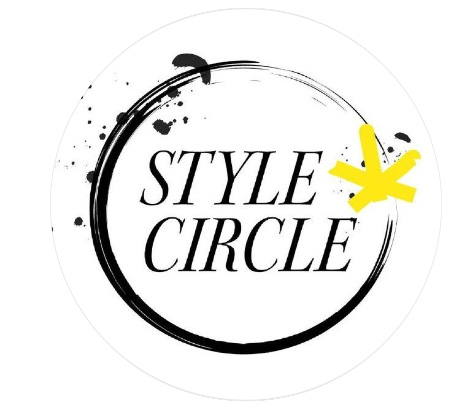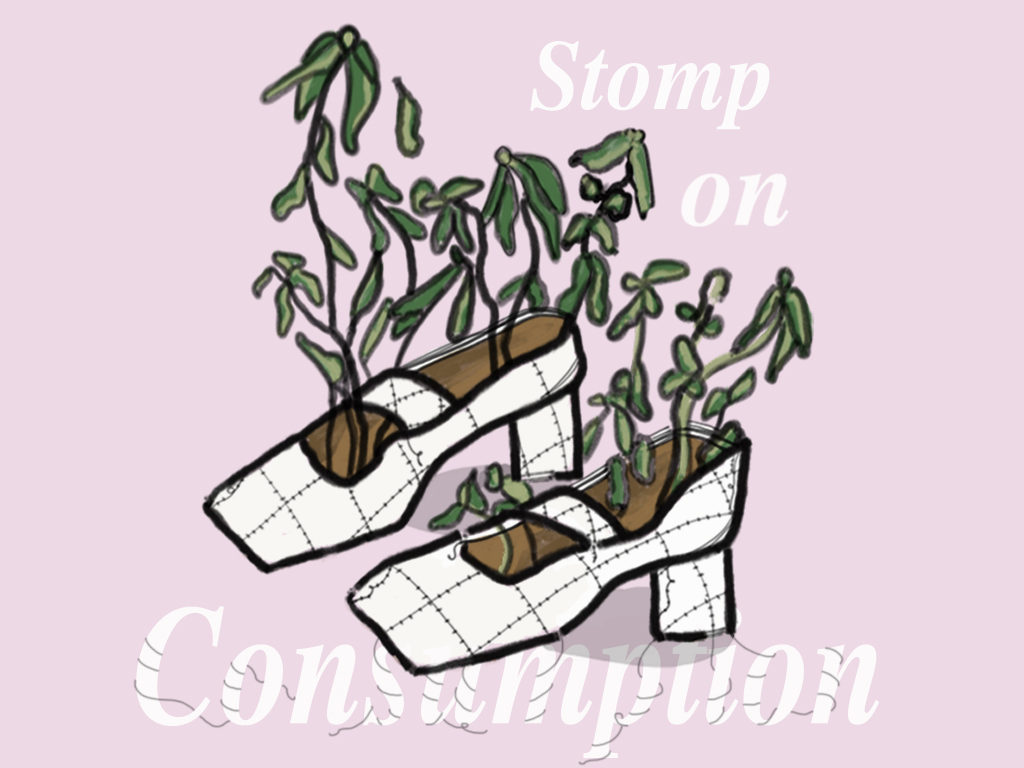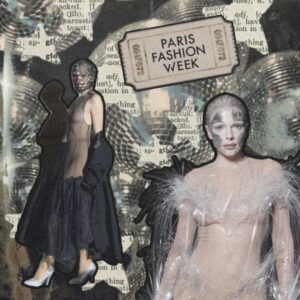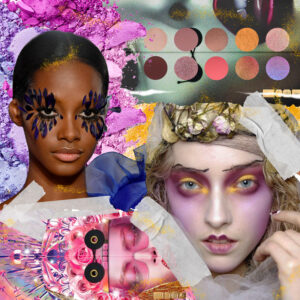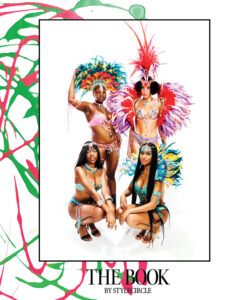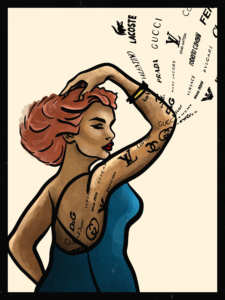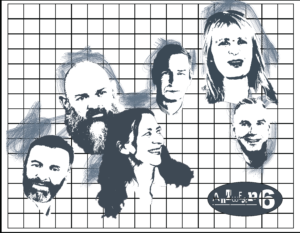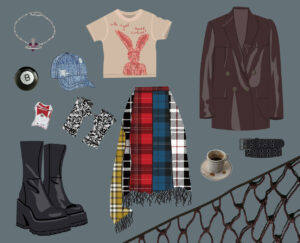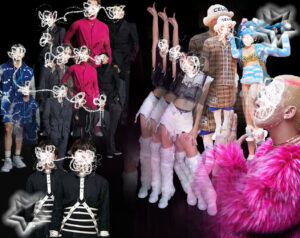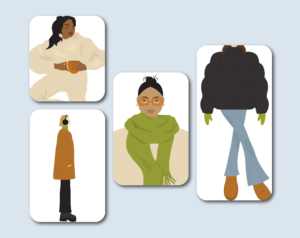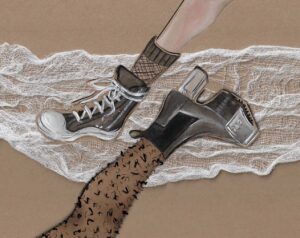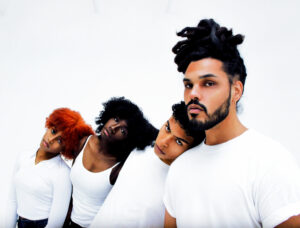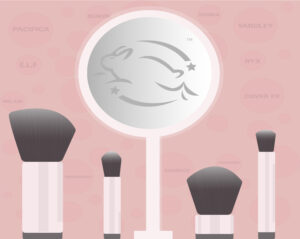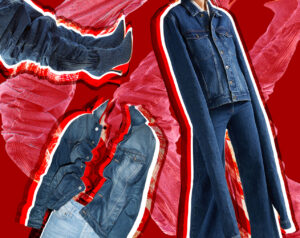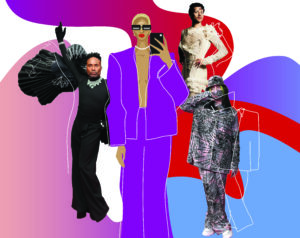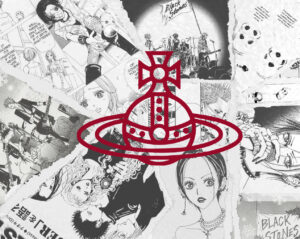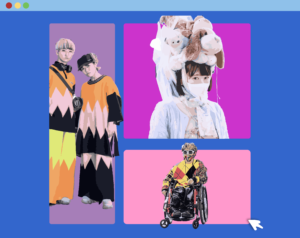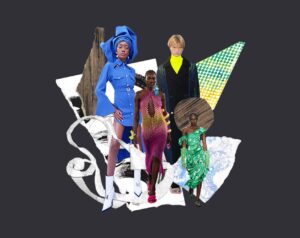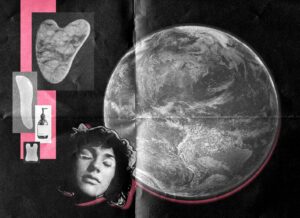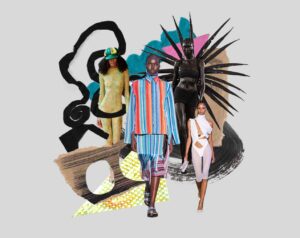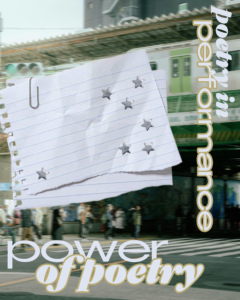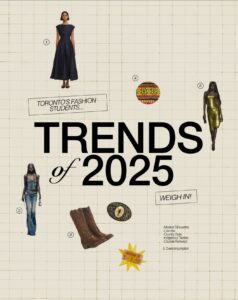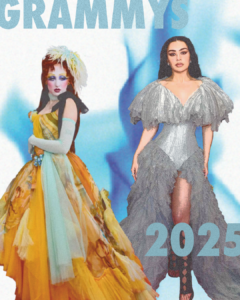GRAPHIC DESIGN Aisling Gogan
When you begin learning about the dirty side of the fashion industry, it’s difficult to stop; like driving by the scene of a car accident, you can’t help but slow down, look around, and try to understand. I’ve always loved fashion. Growing up I was fascinated by the glossy magazines, the runway shows, and the “glitz and glam” of the industry, if you will. The first job I remember dreaming of as a child was a fashion designer, and as I aged, my career goals changed, but my love for fashion did not wane.
The fashion industry has never been able to hide its atrocities completely, however it does a good job of trying to distract consumers with pretty clothes, expensive advertising campaigns, and empty promises about commitments to workers and to the planet.
Early on, I also became heavily interested in social justice and in protecting the environment. What started with separate interests in feminism and environmentalism, began to intersect and branch into other forms of social justice, as I grew older. The fashion industry was a natural place for me to examine, and what I found upset me deeply. The fashion industry has never been able to hide its atrocities completely, however it does a good job of trying to distract consumers with pretty clothes, expensive advertising campaigns, and empty promises about commitments to workers and to the planet. Fashion brands have been, and continue to be, responsible for mistreatment of workers throughout their supply chains and heinous acts that harm the earth, while hiding and denying this when communicating with consumers, and refusing to make substantial changes.
Extinction Rebellion is a movement that spans the earth. It aims to use non-violent civil disobedience to change the broken system that we live in, one that allows for the destruction of our own planet and massive disparities between human beings’ quality of life. Founded by British environmental activists Roger Hallam and Gail Bradbrook, the movement began in the UK and quickly spread around the world. XR Fashion Action, the branch of Extinction Rebellion that specifically addresses the fashion industry, is composed of creatives who have worked, studied, or interacted within different aspects of fashion – those who appreciate the art that is fashion, but do not accept the industry’s unwillingness to change. The fashion industry, as it is right now, embodies capitalistic values that encourage mindless consumerism. XR Fashion Action recognizes that fashion could be a tool used to make positive change, but that is only possible if significant changes are made within.
XR Boycott Fashion is an ongoing campaign whereby participants pledge not to buy any new clothing and textiles for one year (52 weeks), and instead commit to wear and re-wear what is already owned, and to choose to borrow, trade, buy secondhand, remake and repair, rather than buy new. The goal of the campaign is to cut fashion consumption and challenge reliance on the industry, disrupting the flux of clothing that is constantly being produced and sold throughout the world.
I decided to participate in the boycott towards the end of April, when we’d been quarantined for about a month, due to COVID-19. When quarantine began, I noticed that many peers seemed to be increasing their fashion consumption through online shopping. I understood why people felt the need to purchase online when they suddenly had to spend all of their time in their homes, but I wanted to take away this option for myself! Before taking the pledge, I had been cutting back on my consumption of fashion for a couple of years, mostly buying secondhand or repurposing what I already owned, but I was still buying certain items new. I knew I needed to stop supporting an industry that stood against my values, and I am in the privileged position of being able to choose where and how I spend my money; I therefore decided to make this commitment, and make it public, as a way to hold myself accountable. For years, I have researched and talked about the negative impacts that fashion brands and the entire industry have on people and the planet. Committing to a movement that is being carried out by large numbers of people around the world felt like a powerful next step. I do not want to encourage brands, indirectly or directly, to continue to conduct business as they do. I do not want to support companies and industries that profit from the exploitation of people and the planet, and the fashion industry is the epitome of this model of success.
I encourage everyone to begin to slow down, look around, try to understand and learn more about what you are buying, and what your money is contributing to.
Individual brands and the entire industry thrive off of toxic production that pollutes the ecosystems around the areas where fashion is manufactured, encouraging overconsumption and throwaway culture among consumers of fashion, and poor working conditions for people throughout the supply chain. I encourage everyone to begin to slow down, look around, try to understand and learn more about what you are buying, and what your money is contributing to.
It is time to question whether you really need that new pair of shoes and whether the company that you’re buying from is aligned with your personal values and beliefs. Individuals hold more power than we realize, and when we coordinate efforts to create change, we can make ourselves heard.
If you’d like to learn more about the boycott, please go to xrfashionaction.com
